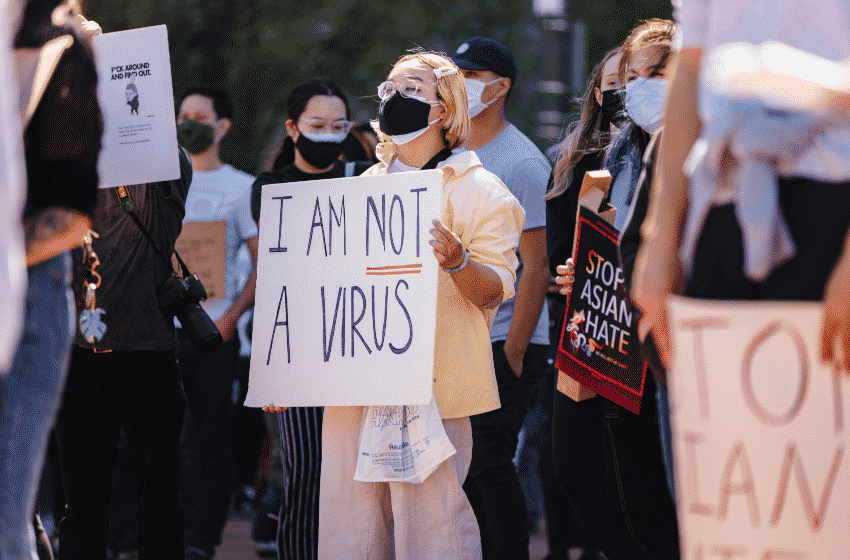
Major brands funding (unintentionally) hate speech
Asian stereotypes, conspiracy theories over the origins of COVID-19, and offensive terminology against Asian American people are thriving in digital content, a new analysis from Nielsen has shown. And while media has a clear role to play in disrupting anti-Asian racism, so do brands.
Since the outbreak of the pandemic, the Asian American community has experienced an increase in hate crimes, with incidents ranging from verbal harassment to deadly assaults. The Center for the Study of Hate and Extremism estimates anti-Asian hate crimes have increased 150% over the past year.
Despite widespread condemnation of these acts, Nielsen’s newly published report ‘Hope And Action,’ has found that anti-Asian online hate speech increased in the beginning of this year. And while many major U.S. brands have taken action to combat racism targeting Asian Americans, some of these same companies are also unintentionally funding online hate speech through their advertising.
“Without insight into where their ads are appearing, brands can easily become associated with offensive content and keywords. “In an increasingly digital media landscape, brands need to protect themselves and stop inadvertently monetizing content that puts AAPI communities at risk,” Nielsen says.
To better understand how prevalent brand exposure to hate speech is, Nielsen conducted a study leveraging artificial intelligence to identify more than 1,200 website URLs containing hate speech against people of Asian descent. 20% of them were published in 2021. Once the company isolated the offensive content, they identified thousands of ad occurrences.
What did Nielsen’s research show?
From news reporting to op-eds, the terms and subjective language connecting blame for the novel coronavirus to Chinese and Asian people has stained media coverage on-screen and online.
According to Nielsen’s research, in the first quarter of 2021, ad campaigns from a dozen Fortune 500 companies and at least 66 brands were found adjacent to content including anti-Asian hate speech.
From January – March 2021, $153 million was spent on digital ads on U.S.-based URLs that have published content with anti-Asian rhetoric. The top ad categories monetizing this hate speech included TV stations and networks ($29.7 million ad spend), department stores ($6 million), apparel ($4.1 million), miscellaneous retail ($3.9 million), travel ($629K), and arms and ammunition ($122K).

Looking deeper, the more frequent terms centered on blame, distrust and malice towards China, their people and their government. Nearly one-third of the hate speech in March 2021 came from just one site, which collected more than $100,000 in digital ad spend from three top advertising categories.
Nielsen prompts advertisers to defund hate
Nielsen’s findings highlight an opportunity for brands to take action against funding online hate speech. Companies and their advertising partners are urged to be in constant review as language emerges that is harmful to the Asian American community – and to their brand.
“It’s not just a matter of corporate social responsibility, it’s a matter of brand safety,” Nielsen argues.
“Nielsen is excited to bring new products and metrics to marketers so that brands can make better decisions to support content that is inclusive and representative, and to avoid placing content adjacent to hate speech,” said Jay Dennis, Nielsen EVP, Advertisers and Industries.
Moonshot News is an independent European news website for all IT, Media and Advertising professionals, powered by women and with a focus on driving the narrative for diversity, inclusion and gender equality in the industry.
Our mission is to provide top and unbiased information for all professionals and to make sure that women get their fair share of voice in the news and in the spotlight!
We produce original content, news articles, a curated calendar of industry events and a database of women IT, Media and Advertising associations.




